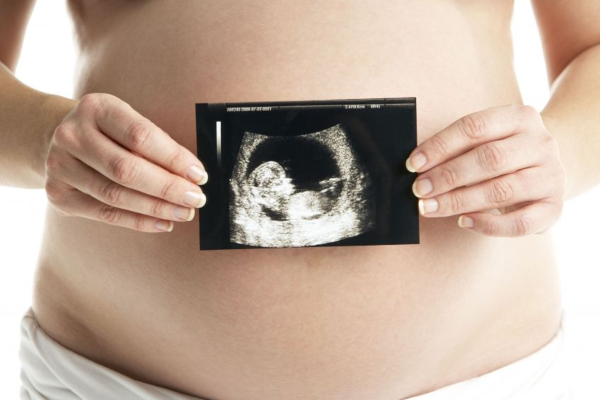Drug Use During Pregnancy
Between 2004 and 20014, the rate of children born with a form of withdrawal called neonatal abstinence syndrome (NAS) increased to over 500%. Substance abuse has been on the rise, especially with the opioid epidemic.
Many view mothers that have substance abuse issues as being criminals because they are hurting their unborn baby. Others view this as an addiction that can’t be helped and consider it is more of a mental issue. Each state has different laws and considerations when it comes to drug use during pregnancy.
California does not consider substance abuse during pregnancy to be a criminal act, child abuse, or grounds for civil commitment, but does promote the use of drug treatment programs.
When abuse is suspected, Alaska is a state that is required to report it. Like California, Alaska does not consider substance abuse during pregnancy to be a criminal act, child abuse, or reason for civil commitment.
Both Arizona and Kentucky require that the mother of a child born with NAS enroll in a drug treatment program, or lose her parental rights.
A pregnant mother who seeks help through addiction treatment in Montana will be spared prosecution or have her child taken away because they don’t view addiction as a crime.
Texas has expanded its treatment options and started offering health support and even access to residential centers where both the mother and baby can receive treatment together.
Drug Use During Pregnancy Long Term Effects
The effects of substance abuse during pregnancy, depending on the drug, can cause long-lasting damage to the baby. Most substances being abused easily cross the placenta, which affects the development of the fetal brain.

Cognitive and behavioral issues are affected, and depending on the type of substance abuse that occurs during pregnancy, the long-term effects can be extremely debilitating. Some babies grow up addicted to the same drug their mother was addicted to during her pregnancy. The substances being abused during pregnancy can include alcohol, cocaine, heroin, and opioid addiction.
- Long-term effects of alcohol include:
- The baby being born with fetal alcohol syndrome (FAS) having symptoms, such as:
- Physical and facial abnormalities
- Learning disabilities, such as not being able to concentrate.
- The baby being born with fetal alcohol syndrome (FAS) having symptoms, such as:
- The long-term effects of cocaine include:
- Neurological damage due to the cocaine’s impact on the serotonin and dopamine pathways within the brain, which can result in:
- An increased risk of seizures, depression, and heart disease.
- Due to the reduced blood flow to the fetus, there is an increased risk for congenital problems and impaired fetal growth.
- Neurological damage due to the cocaine’s impact on the serotonin and dopamine pathways within the brain, which can result in:
- Long-term effects of heroin include:
- Cognitive impairments
- Deficient memory recall
- Hyperactive and are often born with an addiction to heroin
- Cognitive impairments
- Long-term effects of Opioid use include:
- Fetal-growth restriction and a slower or lack of expected physiological development can lead to:
- Emotional disturbance
- ADHD
- Fetal-growth restriction and a slower or lack of expected physiological development can lead to:
What Happens If I Fail a Drug Test While Pregnant
If a woman fails a drug test while pregnant, it may be grounds for civil commitment where she is placed in a treatment center, which can happen if she lives in Minnesota, South Dakota, or Wisconsin.
If drug use is suspected, healthcare professionals must file a report in Indiana, Iowa, Kentucky, Louisiana, Minnesota, North Dakota, Rhode Island, and South Dakota.
During pregnancy, substance abuse is considered a crime in only three states, Alabama, South Carolina, and Tennessee. Tennessee is the only state with a specific statute that declares it a crime to use drugs while pregnant. Tennessee also has a fetal assault law, which was amended in 2014, making it a criminal act to give birth to a child showing symptoms of prenatal exposure to drugs.
However, Indiana’s law protects the mother by prohibiting the medical provider from releasing information without the mother’s consent.
Missouri has a child abuse law that considers a parent unfit if she tests positive for substances within eight hours after delivery. She has also previously been convicted of neglect, child abuse, or failed to complete a drug treatment program that child protective services recommended.
In Alabama and South Carolina, the high courts interpret existing child endangerment and chemical endangerment statutes, allowing for the prosecution of drug-using pregnant women.

In North Carolina, House Bill 918 could dramatically change the way child welfare cases are handled. This bill aspires to make three main changes:
- Define illicit drug use during pregnancy as child abuse regardless of any actual harm to the infant
- Removes the state’s obligation to partake in family reunification efforts if a child was exposed to drugs
- Drastically shortens the amount of time it takes to begin the process of terminating parental rights
Will the Hospital Call the Police for a Positive Drug Test
The United States Supreme Court has ruled that hospital workers cannot test pregnant women for the use of illegal drugs without obtaining their informed consent or a valid warrant if the main reason is to alert the police to a potential crime. Even though the hospital workers are trying to protect the fetus, people are protected against unreasonable searches under the constitution’s fourth amendment. There must first be a warrant issued by law enforcement or the court stating reasonable suspicion a crime has been committed.
The high court has implemented a “special needs” section that applies to students in public schools or railroad workers after an accident occurs. Still, pregnant women do not fall into this category. The physician’s goal is to provide medical treatment to the patient and not act as an extension of law enforcement. Physicians will breach their ethical duties of the patient-physician relationship when they act on behalf of the state. The physician can, however, explain the availability of drug treatment options.
Whether drug use during pregnancy is due to an addiction or a prescription, a baby’s life can be affected. All states have varying laws, and fortunately, a majority of them include drug treatment programs to assist both the mother and her baby.
Sources:
https://www.vumc.org/childhealthpolicy/news-events/many-states-prosecute-pregnant-women-drug-use-new-research-says-thats-bad-idea
https://theappeal.org/two-states-just-made-it-easier-to-take-babies-away-from-mothers-who-use-drugs-during-pregnancy-d6a6f426c6fe/
https://leg.mt.gov/bills/2019/billhtml/SB0289.htm
https://hhs.texas.gov/services/mental-health-substance-use/adult-substance-use/adult-substance-use-women-children-residential-treatment
https://www.ncbi.nlm.nih.gov/pmc/articles/PMC4262892/
https://www.ncbi.nlm.nih.gov/pmc/articles/PMC4795985/
https://www.guttmacher.org/state-policy/explore/substance-use-during-pregnancy#
https://www.amnesty.org/download/Documents/AMR5162032017ENGLISH.pdf
https://www.ncleg.gov/Sessions/2019/Bills/House/PDF/H918v2.pdf
https://www.ncbi.nlm.nih.gov/pmc/articles/PMC1119949/#:~:text=The%20United%20States%20Supreme%20Court,police%20to%20a%20potential%20crime

